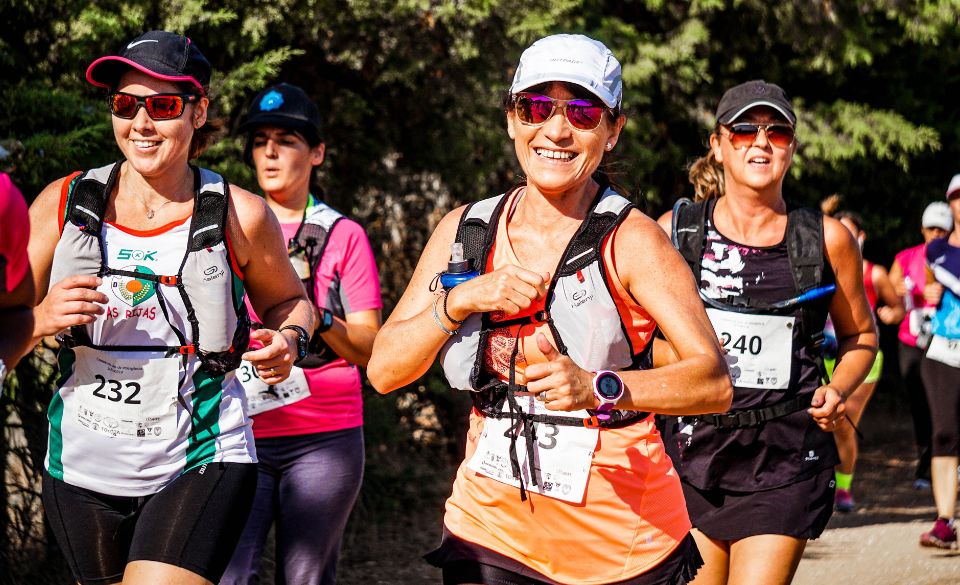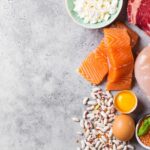
What Should I Eat When Running A Marathon?
Page Contents
Why Is Nutrition Important During and Before A Marathon?
Marathons are a great way to challenge yourself and push your body to reach greater limits, but running this grueling race requires preparation that goes beyond just running training. Proper nutrition and hydration play a key role in ensuring a successful marathon experience. From providing energy to repairing and rebuilding your muscles, nutrition is essential in helping your body reach its full potential.
Nutrition is important on the day of the race as it gives your body the energy it needs to carry you through the entire event. This can be achieved through eating a balanced meal prior to the event. A heart-healthy, protein-packed breakfast with plenty of carbs is an ideal option for a marathoner. Eating a light snack an hour to two before the race is also a great idea. This will provide your body with quick energy and will help you to stay fuller longer.
Hydration is a key factor in proper marathon nutrition. Aim to drink half of your body weight in ounces of water each day, with more on days of intense training. During the marathon, it is important to time your water stops and to keep sipping regularly. Avoid drinking large amounts of water at once; instead, aim for four to eight ounces every 15 minutes.
Proper nutrition is also necessary prior to a marathon. Training requires more energy than usual, so it is important to meet your body’s needs by eating a balanced diet. Focus on eating whole grains, low-fat proteins, and healthy fats like nuts, avocados, and olive oil. Other nutrients that are important for marathon training include omega-3 fatty acids, which can be found in fish and nuts, as well as iron, which is found in green vegetables.
Consuming a nutritional diet prior to the marathon will help you to build your energy stores and prevent fatigue. It is important to avoid eating processed or sugary foods, which can contain many unhealthy preservatives. In addition, avoid eating a large meal before running a marathon. Rather, stick to small meals and snacks at regular intervals throughout the day.
Nutrition is important for marathon success both before and during the race. Eating a balanced diet, staying hydrated, and eating small meals throughout the day are key in helping your body to stay energized during the event. Following a nutritious diet and timing your meals correctly will ensure that you have enough energy to succeed and push your body to its limits.
What Should I Eat When Running A Marathon?
If you’re gearing up to run a marathon, the most important decision you make besides which shoes you will wear may be what to eat before and during the race. Nutrition can help determine your energy level and performance during the race, so it’s critical to get it right. Here’s what you need to know to fuel your body to the finish line.
Before the race
All athletes have unique needs, so it’s important to experiment to find out what works best for you in the weeks leading up to the race. Experiment with different foods and timings and make adjustments as necessary.
In general, it’s best to eat a meal rich in carbs about two to four hours before the race to maximize performance and energy levels. Aim for foods that are easy to digest and not high in fat or fiber as these may cause GI distress during the race. Oatmeal with fruits and nuts, a bagel with peanut butter, or a banana with yogurt are all good pre-race options.
During the race
What you eat during a marathon is extremely important. Carbs are still the top fuel source during the race, but it’s also important to pay attention to your hydration and electrolyte levels. Endurance athletes should aim to drink at least 8 ounces of fluid per pound of body weight and sodium intake should be 250-500 milligrams per hour.
Most athletes will want to consume about 30–60 grams of carbohydrate per hour of exercise for optimal performance and glycemic control. This means you should aim to take in around 200-400 calories per hour. Good options for during the race include energy gels, sports drinks, and energy bars, but be sure to practice with these options during training to see how your stomach handles them.
Post-race
After the race, refuels with a combination of carbs and protein. This will help your body replenish energy stores and rebuild muscle tissue. The ideal recovery food will be full of electrolytes, making chocolate milk or a protein smoothie a great option. You may also want to add a balanced meal of lean proteins, healthy fats, and complex carbs to your post-race routine to help rebuild and refuel your body.
Whether you are just starting to train for a marathon or you’re an experienced runner, eating the right foods can be key to hitting your goal. Make sure to stay hydrated and replenish your electrolytes throughout the race and enjoy nutritious meals before and after the event to help your body recover. With the right nutrition, you can fuel your body for an amazing race.


